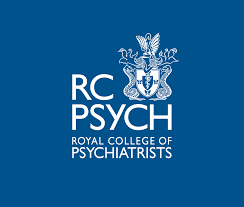What is a Psychiatrist?
We offer a service that allows you to have online psychiatric appointments

A psychiatrist is a medical doctor (MBChB, Member of the Royal College of Psychiatrists) who works and specialises in the field of mental health.
They are able to conduct psychiatric assessments, provide diagnoses, make a care plan for ongoing care including prescribing medication, refer you for physical treatments like magnetic stimulation of the brain, monitoring of your mental and physical health recommend talking therapy.
Our platform allows you to see a private psychiatrist online.
Child & Adolescent (CAMHS) Psychiatrist
A child & adolescent psychiatrist is a doctor who specialises in diagnosing and treating mental and emotional disorders in children.
Like all psychiatrists, they are trained to integrate biological, psychological and social factors when working with patients (the bio-psychosocial model) to devise a treatment plan for a child. This plan may include medication to help control or minimize certain behaviours or thoughts.
The child and adolescent psychiatrist can also offer expertise in disorders starting in childhood and adolescence to adult mental health services during transition from child and adolescent mental health services (CAMHS) to adult mental health services.

CAMHS psychiatrists work with the patients, their families, educators and other healthcare providers, if involved.
In addition, they have specialist knowledge and skills in connection with assessment of the ‘developmental disorders’ or more specifically neurodevelopmental disorders, which include autism spectrum disorder, ADHD.
Important factors affecting children and teenagers:
• Developmental changes are most marked during childhood and adolescence.
• Children’s mental health has to be assessed within the context of their family and cultural environment including school, local communities, healthcare, etc.
• Young people are more likely to be brought to medical attention by a responsible adult which affects the presentation.
• There is usually a cultural divide between the young people and their carers
General Adult Psychiatrist
General adult psychiatrists treat people who are within the “working age” group. They see people with a wide range of disorders including psychoses, mood problems and personality disorders which usually begin in early adulthood
Neuropsychiatry, addictions psychiatry, liaison psychiatry are all sub-specialities of general psychiatry.
This section of the population has its own specific issues and the way they present. They carry complex responsibilities at work, family and socially. On the positive side, they are able to change unhelpful behaviours more readily and develop new coping strategies with treatment and therapy.

General adult psychiatrists help their patients get mentally and emotionally well along with realising their potential with educational and occupational pursuits. They would do this through integrating biological, psychological and social aspects to form a tailor-made care plan.
Older Adult Psychiatrist
Older Adult psychiatrists provide specialised assessment, treatment and ongoing care for adults over the age of 65 years, who suffer from a range of mental health problems including memory issues, dementia and other disorders also seen in the other age groups including depression and schizophrenia
Older Adult Psychiatrists have an understanding of the complexity of interaction between physical, psychiatric and social problems specifically experienced by older people. Psychiatrist within this specialty arerequired to closely collaborate with a wide range of professionals including physical health professionals (Neurologists, Cardiologists, Geriatricians), social services.
They are required to have knowledge of mental health law with regard to mental capacity to make decisions, deprivation of liberty, safeguarding vulnerable adults and other legal aspects like lasting power of attorney and guardianship etc.
These psychiatrists need to have detailed knowledge of how drugs can affect older adults in a way which is different from other ages and therefore require more careful prescribing.








